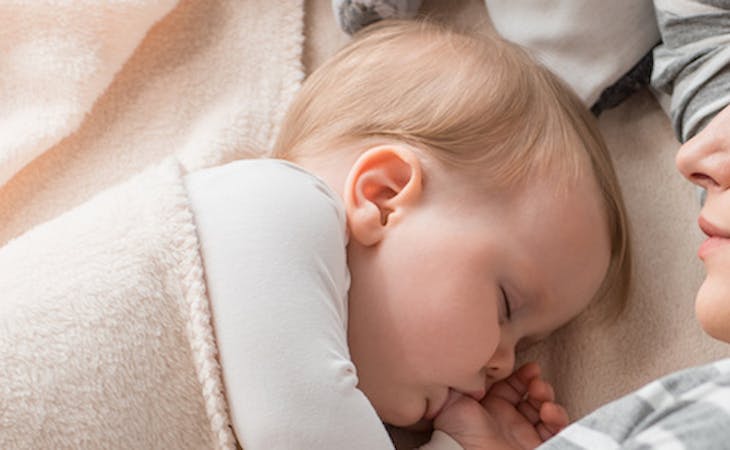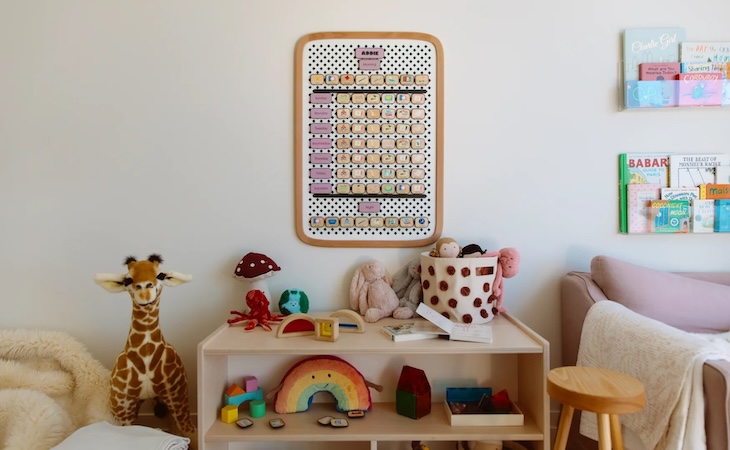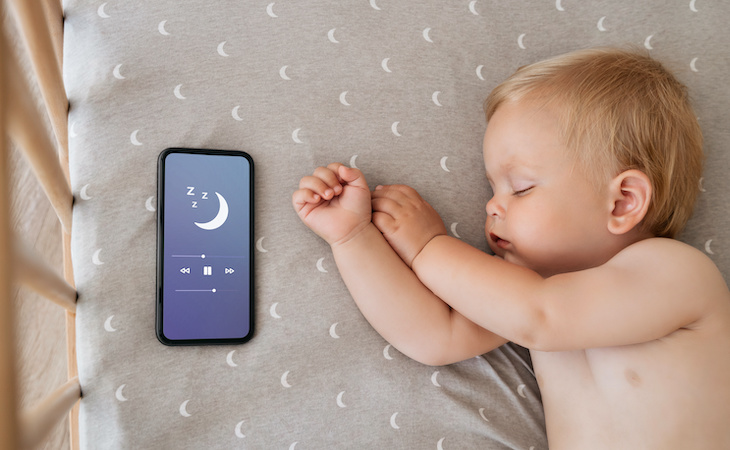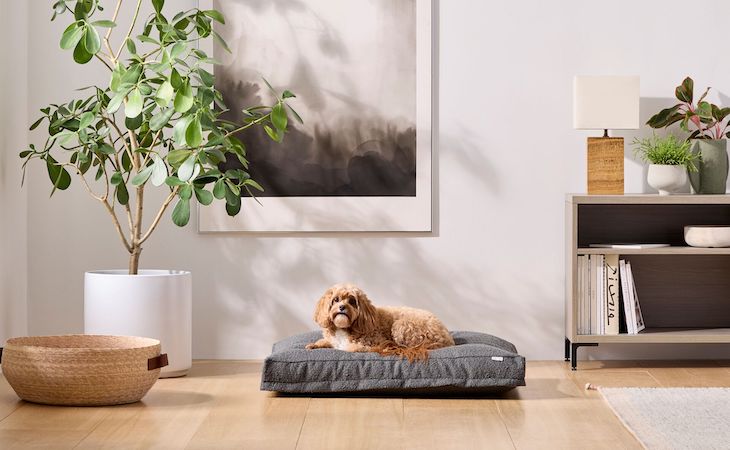For many new parents, it only seems natural to keep baby as close and comfortable as possible—even while sleeping at night. Sharing a bed will only strengthen your parent-child bonding, right?
Not so fast.
Recent research suggests “co-sleeping” with a new baby doesn’t make a big difference in bonding—and, what’s more, it can be very dangerous for the child.
Fortunately, there are plenty of ways to bond with your baby while keeping them safe so that everyone can get a good night’s sleep.
Below, learn more about co-sleeping, why it can be bad for baby, and what you should do instead to ensure your little one’s safety during sleep.
What is co-sleeping?
Co-sleeping is the term used for parents sharing a bed with their new baby.
According to Ryan Youngberg, co-founder of Baby’s Journey, a website dedicated to researching and suggesting the best baby products, there are three main reasons why some parents consider co-sleeping.
They believe co-sleeping is:
- Cheaper and easier than buying a bassinet or crib to set up in the parents’ bedroom;
- The best way to build a stronger connection between mother and baby; and
- Less dangerous, since they can keep an eye on the baby without needing to get out of bed.
“Parents sometimes plan to co-sleep so they can make nighttime feedings easier as well as bond with the baby,” adds Nicole Johnson, president and owner of The Baby Sleep Site.
She also says some parents co-sleep out of necessity.
“When your baby won’t sleep, it’s borderline torture if not actual torture,” says Johnson. “It’s hard for many new parents to cope with the sleep deprivation so they may go into survival mode. This often means pulling the baby into bed with you.”
However, as research shows—and experts point out—co-sleeping could have serious risks.
Related: A sleep coach shares her best baby sleep tips
Is co-sleeping dangerous for baby?
Although it feels “natural” to co-sleep, the American Academy of Pediatrics (AAP) strongly discourages the practice because of the potential danger it presents.
“The risk of co-sleeping outweighs any potential benefits,” says Jordan Seidel, owner of Let Mommy Sleep, a Las Vegas-based company that provides overnight care to newborns so parents can recuperate when transitioning from hospital to home.
So for your baby’s safety, it’s best to resist the urge.
“Co-sleeping,” elaborates Seidel, “is associated with an increased risk of sudden unexpected death in infancy (SUDI), including sudden infant death syndrome (SIDS) and fatal sleeping accidents.”
Johnson explains why this is so risky: “Co-sleeping in terms of bed-sharing can be dangerous because a parent can roll on top of the baby or accidentally cover them with blankets that can suffocate the baby,” she says. “In addition, adults typically have soft bedding which has been categorized as a risk of SIDS.”
If these warnings aren’t enough to deter you from co-sleeping with your new baby, then a new study published in the Journal of Development and Behavioral Pediatrics might. Per the study, co-sleeping doesn’t increase mother-infant bonding.
“Our main finding is that parental bed-sharing during the first six months does not affect secure attachments of the baby and the mother, and also mother’s bonding with the baby,” study lead Ayten Bilgin, lecturer in developmental psychology at the University of Kent, in England, told HealthDay.
The study analyzed data from 178 infants and their parents from a mix of questionnaires and in-person visits, at term and then again at three, six, and 18 months.
It found no associations between sharing a bed with baby during the first six months and maternal bonding, infant-mother attachment, sensitive parenting, and infant behavioral outcomes (such as attention levels, hyperactivity, and task persistence at 18 months).
“I think as long as the parents have interactions during the day with their baby, then there shouldn’t be any worries about their bonding or attachment,” says Bilgin.
According to the study, there’s also consistent evidence that the risk of SIDS increased when infants shared a bed with their parents, even without hazardous situations. That was further increased if there was parental use of alcohol, drugs, cigarettes, or sleeping on a soft surface. The AAP notes that 3,500 infants die in the United States each year from sleep-related causes.
On the flip side, allowing your child to sleep on their own can be good for them.
“Teaching them to sleep independently will help them through their developmental years,” says Dorothy Chambers, sleep expert with Sleep Junkie. “It will be beneficial to teach them sleep associations to help them adopt proper sleeping times. This will help them establish their body clock and get good quality sleep.”
Related: How much sleep your child needs, according to their age
How do you ensure your baby sleeps safely?
Although the AAP recommends against bed-sharing, that doesn’t mean infants must sleep in a different room. The group recommends infants sleep in their own crib in the same room as their parents for at least six months but preferably for a full year.
“Instead of co-sleeping, consider room sharing,” says Seidel, citing the AAP recommendation. “Your baby can sleep in their own portable crib, play yard, or bassinet in your room, even right next to your bed.”
Seidel notes that the AAP “also recommends putting your baby to sleep on their back and making sure their sleep space is clear of any blankets, pillows, stuffed animals, bumpers, etc.” She adds, “This safe alternative allows you to feel safe and secure with your baby near, without posing any of the risks co-sleeping does.”
Besides room sharing, the AAP also recommends that a safe sleep environment include using a firm sleep surface, i.e., a
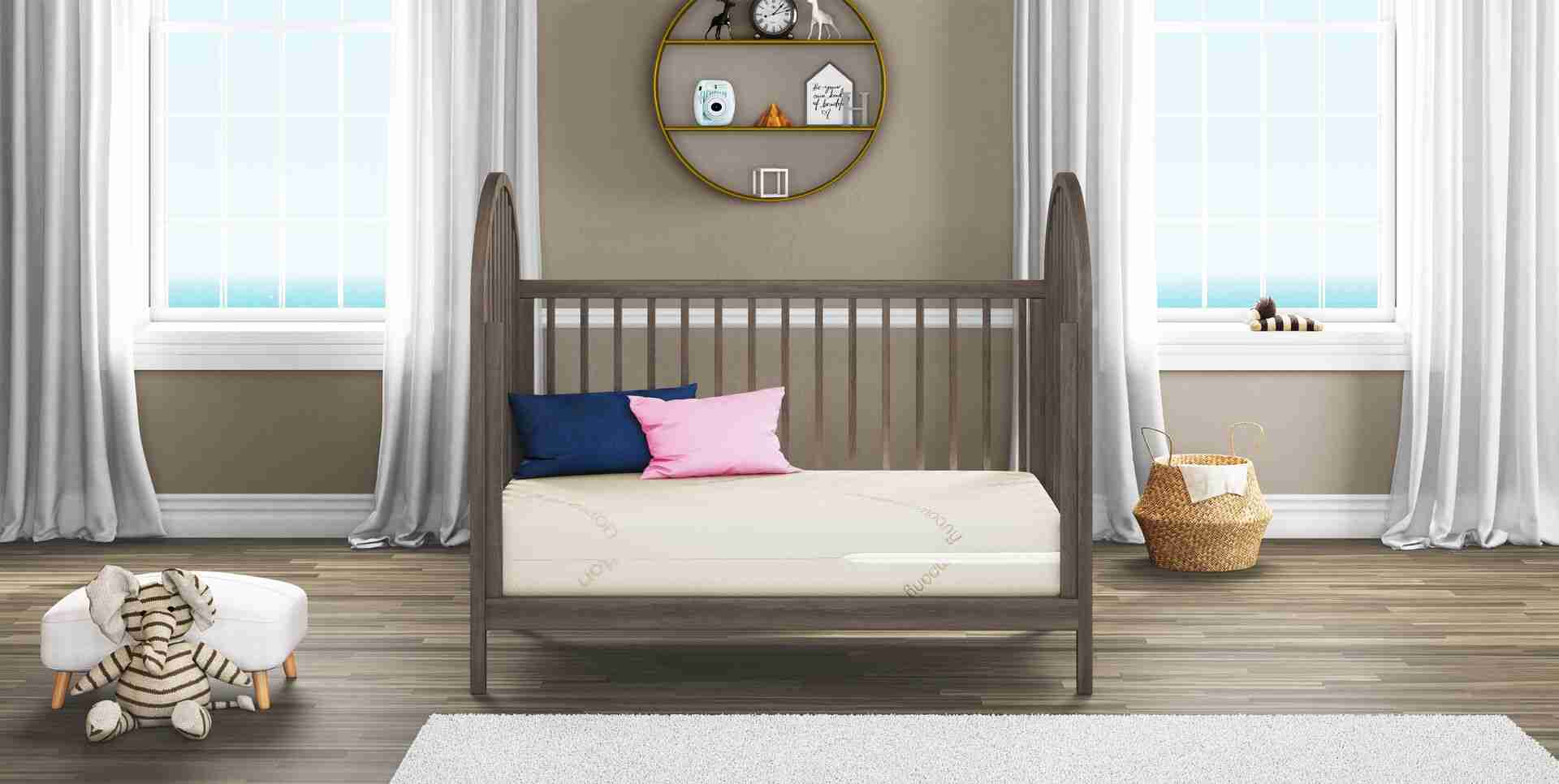
Our dual-sided crib mattress for little ones
and avoiding soft bedding and overheating.
To further reduce the risk of SIDS, the AAP advises breastfeeding, routine immunizations, using a pacifier, and avoiding exposure to smoke, alcohol, and illicit drugs.
Which products do you really need to help your baby get healthy sleep? We put together a list of the best baby registry items to add to your list, from swaddles to nightlights.

